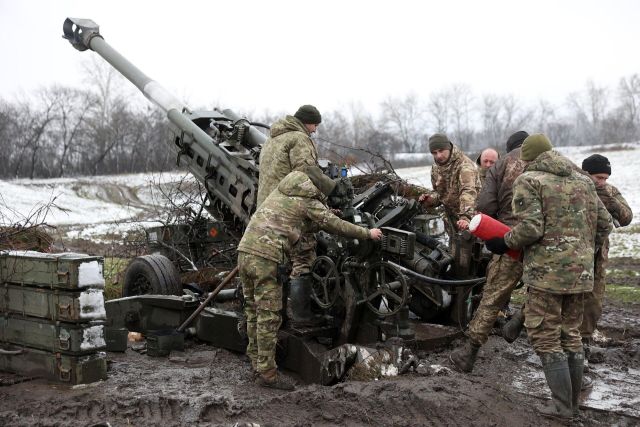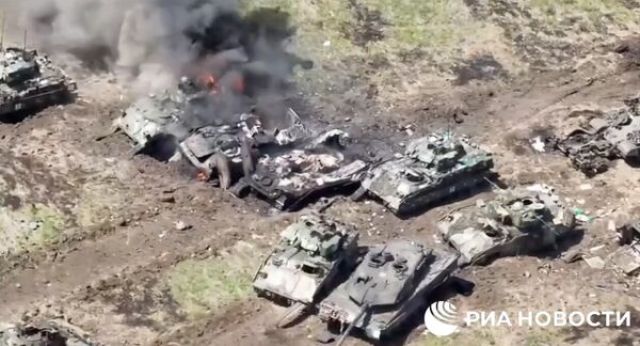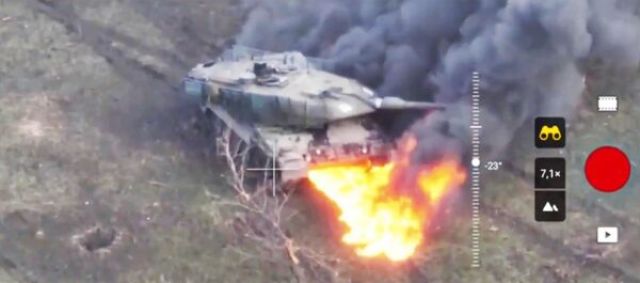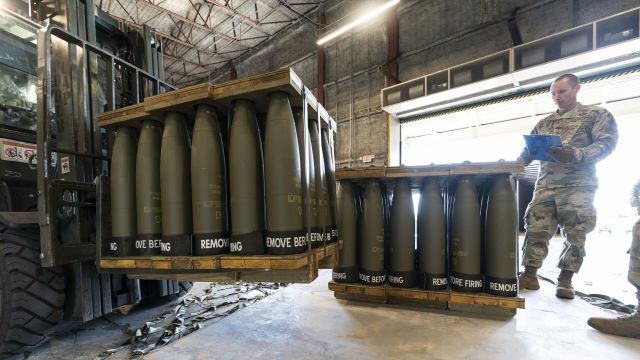The EU countries could not collect a million shells for the APU in a year
MOSCOW, Nov 27 — RIA Novosti, Andrey Kotz. The industry of the West does not have time to meet the needs of the APU. According to German Defense Minister Boris Pistorius, the EU will not be able to deliver a million artillery shells to Ukraine by the spring of 2024, although it promised. About whether the Kiev regime will have enough ammunition, — in the material of RIA Novosti.
Thirty percent
The EU High Representative for Foreign Policy and Security, Josep Borrel, on March 20, pathetically called the decision on a million shells for Kiev historic and promised to allocate two billion euros. Western tanks, armored personnel carriers, infantry fighting vehicles were already imported then. Ukraine was pumped up with weapons for the spring-summer counteroffensive and did not skimp on generous promises.

Ukrainian gunners reload M777 howitzer
Image source: © AFP 2023 / Anatolii Stepanov
By November, it became clear that it would not be possible to contain them. Boris Pistorius admitted that the European Union overestimated its strength. In March, by the way, there were also enough skeptics. "Unfortunately, they were right," the minister stated. And he added: "The goal was unrealistic." Kiev received only about 300 thousand 155-caliber shells.
Borrel now says that the EU "does not have a separate ammunition depot" for Ukraine. Secretary General of the North Atlantic Alliance Jens Stoltenberg considers the situation difficult.
Nine months ago it was different. The European Union went all in, counting on the success of the AFU operation. They probably thought that Ukrainian victories on the battlefield would force Russia to ask for peace. And the previous promises will become irrelevant.

The Russian Defense Ministry showed footage of destroyed tanks.June 10, 2023
Image source:
However, the widely advertised counteroffensive has already completely run out of steam. There are no significant results. The positional "butting" continues, in which the artillery plays a decisive role. The Ukrainian army spends six to ten thousand artillery ammunition per day. Three hundred thousand will be enough at best for a month and a half.
Doubts of industrialists
Politicians immediately appointed "extreme" producers. In particular, Dutch Defense Minister Kaisa Ollongren pointed to them: "We signed contracts, conducted joint purchases. The industry must do everything."
Borrel, in turn, accused manufacturers of continuing to export 40% of products bypassing Ukraine. The European Association of Aerospace, Security and Defense Industries stated that they did not have time to prepare for the fulfillment of orders for Kiev and in any case are busy replenishing domestic stocks.
The European defense industry is extremely cautious in assessing the prospects for further involvement in the Ukrainian conflict. The industry is thinking about how to recapture costs. And the uncertainty is growing — what if the fighting stops the next day after the pipeline is launched?
Results of deindustrialization
Politicians and gunsmiths clearly did not expect a big war. The emphasis was on new technologies, precision weapons, satellite grouping, aviation and cruise missiles. Such high-tech, as practice has shown, is effective in local conflicts. But not with a front line of hundreds of kilometers, with tens of thousands of soldiers.
After the end of the Cold War, in fact, deindustrialization began in the West. Many defense enterprises have been closed or re-profiled. Auxiliary production was brought to third world countries for the sake of economy. The remaining ones did not develop and focused on small batches of products.
For the rapid restoration of production capacities, much more money is needed than is currently being allocated. And the EU is not in a position to waste money at all. Anti-Russian sanctions have hit its economy with a boomerang, the lion's share of the budget is now being eaten up by expensive American gas.

Destroyed Leopard Tank
Image source: © 114th Separate Guards Motorized Rifle Brigade
"But there is also a political problem," adds Vladimir Zharikhin, deputy head of the Institute of CIS Countries. — After the failure of the APU counteroffensive in the EU, they do not believe that what is allocated to Kiev will be for the good. Anti-Russian sanctions did not work either. Most likely, Europe will take a course for peace negotiations."
Nevertheless, the Ukrainian guns have something to shoot. Back in the summer, the West reacted to the shortage of 155-millimeter high-explosive shells and organized the supply of cluster munitions of the same caliber, banned in many countries of the world. They are disastrous for infantry even in trenches, but they are practically harmless for dugouts, armored vehicles and soldiers in buildings.
The greatest threat is to the civilian population. Unexploded submunitions can lie in the grass for years and detonate when touched. But, of course, such "trifles" do not bother Ukraine's allies at all.

